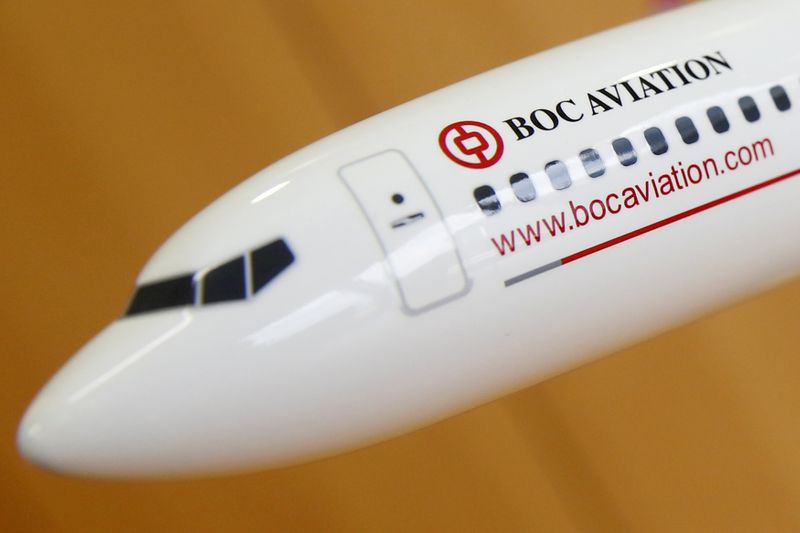SINGAPORE (Reuters) – Armed with strong funding, Asian lessor BOC Aviation has struck an estimated $5.5 billion of deals with carriers including Southwest <LUV.N> and United Airlines <UAL.O> to buy and lease back aircraft as the sector faces its deepest ever crisis.
BOC Aviation <2588.HK> Chief Executive Robert Martin also told Reuters that the Singapore-headquartered lessor had 100% of its fleet on lease after reaching three-month partial payment deferral deals with many customers.
“Our general approach has been to talk about a three-month deferral where we maybe defer around half of their rent and then have them pay back whenever their strong period is later in the year,” Martin told Reuters in an interview on Tuesday.
Global airlines are facing a battle to survive, with most flights grounded since March due to travel restrictions to contain the novel coronavirus.
The pandemic has spurred BOC Aviation into a flurry of deals to purchase and lease back aircraft this year, with transactions agreed on more favourable pricing terms for the firm than would have been achieved in a stronger market, Martin said.
“If you are brave enough to step out where others dare not venture then obviously the pricing is different,” he said, adding that BOC Aviation had mostly completed its purchase and leaseback deals for this year.
As of Dec. 31, the company’s portfolio had a net book value of $16.8 billion.
Martin said the firm, which has a total fleet of 567 planes, including those on order, had also for the first time in nine years tapped into a $2 billion funding line provided by its majority shareholder Bank of China Ltd <601988.SS>.
The global aircraft leasing industry has expanded furiously over the past few decades and won over many new players, who have been attracted by its long-term duration, global mobility and dollar-based revenues.
Martin, an industry veteran of more than 30 years, said lessors may need to start taking back some planes in the second half of the year as the sector feels the deep impact of the virus outbreak.
“We, like everyone else, will have some customers who won’t make it through this. We are prepared to move planes around when we have to,” he said.
“We haven’t got to that point yet as of today. But we have to expect there will be some friction in the market, probably over the third and fourth quarter,” Martin said.
In times of financial strain, lessors may agree with carriers to take back some of the planes leased out, though they may also seek to forcibly reclaim them in some cases.
Martin said airline traffic could rebound fairly quickly to 80% of 2019 levels once travel restrictions are lifted, but the last 20% might take until 2023.
The lessor remains confident in the future of Boeing Co’s <BA.N> grounded 737 MAX, noting that its deal with Southwest includes 10 of the aircraft, Martin said.
“On the 737 MAX, Boeing are telling us they will start production this month at a very low level, maybe two a month,” Martin said.
A Boeing spokeswoman declined to comment on the rate but noted Chief Financial Officer Greg Smith said on an earnings call last month that production would begin at a slow pace, rising to 31 a month in 2021.
Reuters reported in March that Boeing was planning to restart 737 MAX production in May.
(Reporting by Anshuman Daga and Jamie Freed; Editing by Edwina Gibbs and Jan Harvey)
























